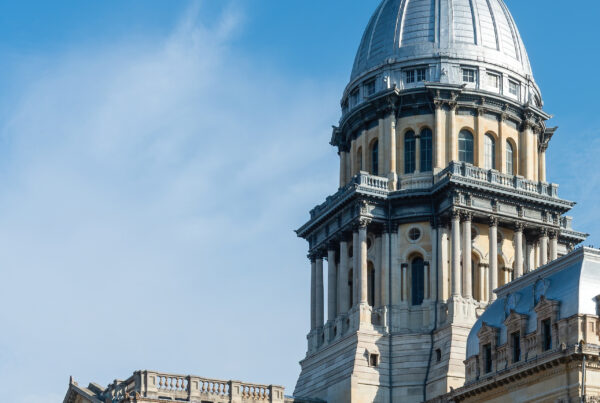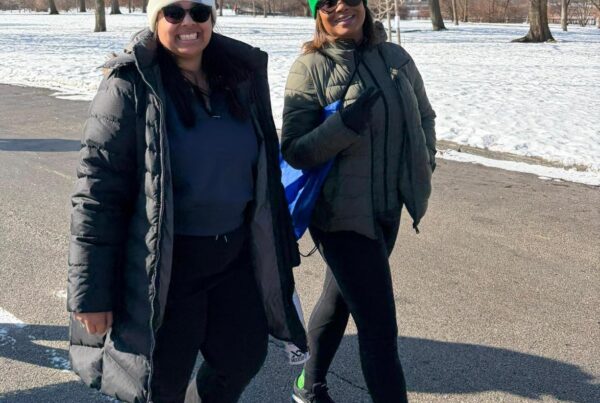Group At Center of Efforts to Protect the Homeless From Disease Favors Robust Expenditure on “Shield Housing” for Population at “High Risk” of Infection; Part of Multi-Point Recommendations Outlined in New Report by Team Coordinating Health Care For Homeless People
A COPY OF THE REPORT CAN BE RETRIEVED HERE
PRESS CONFERENCE VIDEO ACCESSED HERE
The city of Chicago’s proposed investment in housing to curb the spread of COVID-19 among people experiencing homelessness falls $5 million short of the amount recommended by a group of public health experts focused on protecting that vulnerable population, according to a new report released Thursday.
Members of the Chicago Homelessness and Health Response Group for Equity (CHHRGE), a coalition that has helped identify and address COVID-19 risks threatening the embattled homeless population, urged city officials to designate $21.9 million in existing federal aid to fund 1,750 units of “shield housing” – rental apartments reserved for victims of homelessness who are at high risk of succumbing to coronavirus infection.
Under the plan Mayor Lori Lightfoot has proposed, the city would allocate $15.7 million to this initiative, accounting for 1,250 rental units – or 500 fewer than the group recommends to bolster Chicago’s defenses against a disease that is apt to prey on people experiencing homelessness, who lack the wherewithal to safely social distance and are disproportionately prone to preexisting medical ailments.
The group’s recommendation on housing expenditures is part of a larger blueprint of policies it championed in a report released Thursday, including the city’s appointment of a Chief Homelessness Officer, that aims to protect Chicagoans experiencing homelessness from contracting COVID-19 and perpetuating its spread throughout the community.
“Now more than ever, it is apparent that housing is healthcare,” said Dr. David Ansell, Senior Vice President for Community Health Equity at Rush University Medical Center, and one of the original architects of the coalition. “The city has made fantastic strides in its response to COVID-19 for people experiencing homelessness, but we can’t risk relinquishing the upper-hand in the effort to contain the disease by falling just $5 million short of the need. We urge the city to bridge that small funding gap and shore up its armor against a pandemic that threatens everyone as long as anyone is left unprotected.”
It would expand on a prior city initiative to requisition hotel rooms and convert them into temporary “shield” housing for Chicagoans experiencing homelessness who are over 60 years old, or who are over age 55 with comorbidities. The coalition praised the city for that investment, citing it as a key reason why COVID-19 fatalities among people experiencing homelessness have remained low.
Chicago Tribune, Cecilia Reyes: Advocates call for more permanent housing units for vulnerable homeless Chicagoans as COVID-19 crisis eases: ‘An issue of racial justice’
To continue to generate those positive outcomes, particularly as the city ushers in some semblance of a return to normal public activity, CHHRGE believes significantly more “shield” housing will be needed to continue to flatten the infection curve and recommended providing this resource in the form of conventional apartments, accompanied by supportive services tailored to people experiencing homelessness. That approach is cheaper than the cost of reserving hotel rooms, and it has proven effective as a bridge that helps recipients integrate back into permanent housing stability, preventing a recurring cycle of homelessness that breeds more COVID-19 infections.
While shield housing would be a temporary asset supported by the short-term injection of CARES Act relief, CHHRGE also recommended additional city commitments to supplement long-term permanent housing opportunities for people experiencing homelessness.
Among it other recommendations, CHHRGE urged city officials to:
- Maintain the number of shelter beds that existed pre-COVID, with additional space to social distance.
- Fund housing subsidies and other supports to create 2,000 additional units of non-time-limited housing by the end of 2021, including permanent supportive housing to reduce the number of persons dependent upon the overnight shelter program. Use rent supports, housing set-asides, and other strategies to expand affordable housing across the city.
- Shield high-risk individuals and families in apartments, funding at least 1,750 rental subsidies with supportive services, bridging to permanent solutions, allowing high-risk individuals and families to move from congregate settings into their own units and reduce the risk of infection.
- Broaden the definition of the “high-risk” to include medically and structurally vulnerable adults.
- Create a Chief Homelessness Officer within the mayor’s office to coordinate a homelessness strategy across multiple departments in the city of Chicago.
- Create medical partnerships for every shelter in the city to ensure that guests have access to timely, high-quality medical and behavioral care, and shelter staff have access to information and resources to operate safely.
- Conduct ongoing COVID-19 testing and surveillance screening across the population of the homeless and vulnerably housed to monitor true disease prevalence and recovery, in order to create an early warning system of a second wave. Apply a racial equity analysis to this data to help inform city priorities.
- Define standards of medical and housing care for the homeless population, including performance measures and provide sufficient funding to shelter and medical providers to meet those standards.
- Implement Illinois’s 1115 waiver to pay for wraparound services. Amend the current waiver to include funding for housing the homeless.
- Expand system capacity for providing key behavioral health services by working with the state and local community mental health agencies and outpatient treatment providers.
Nearly 77,000 Chicagoans experienced homelessness, as of 2018, the latest year for which data was available, according to the Chicago Coalition for the Homeless. But that number is expected to escalate by a potentially dramatic margin as the economic ruin caused by COVID-19 has raised the specter of mass evictions. That concern represents a major health care risk during the pandemic, given the vulnerabilities to infection faced by people experiencing homelessness.
For more information:
Mike Truppa
miketruppa@gmail.com






